|
It's the life of a high country shepherd
Resembles the life of a dog
In summer you sizzle in sunshine
In winter you freeze like a log.
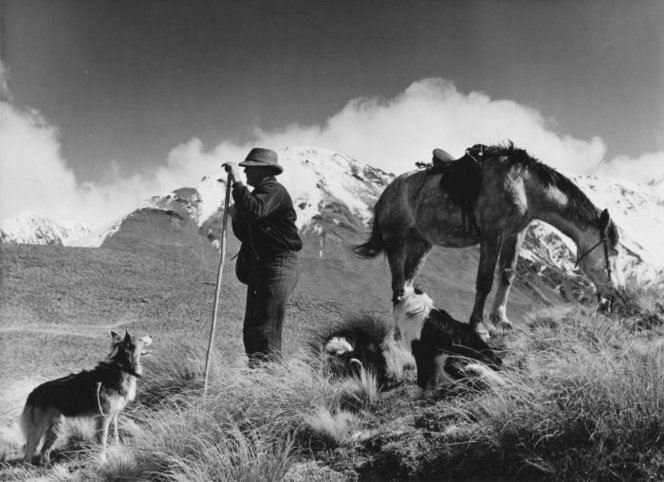
For companion a half border collie
Who's continually scratchin' for fleas
And from climbing the slopes of the Coronet
I'm considerably gone at the knees. BORDER COLLIE
dog bred on the border of Scotland/England.
Energetic, inelligent and responsive.
THE CORONET - Coronet Peak, near Queenstown, Central
Otago.
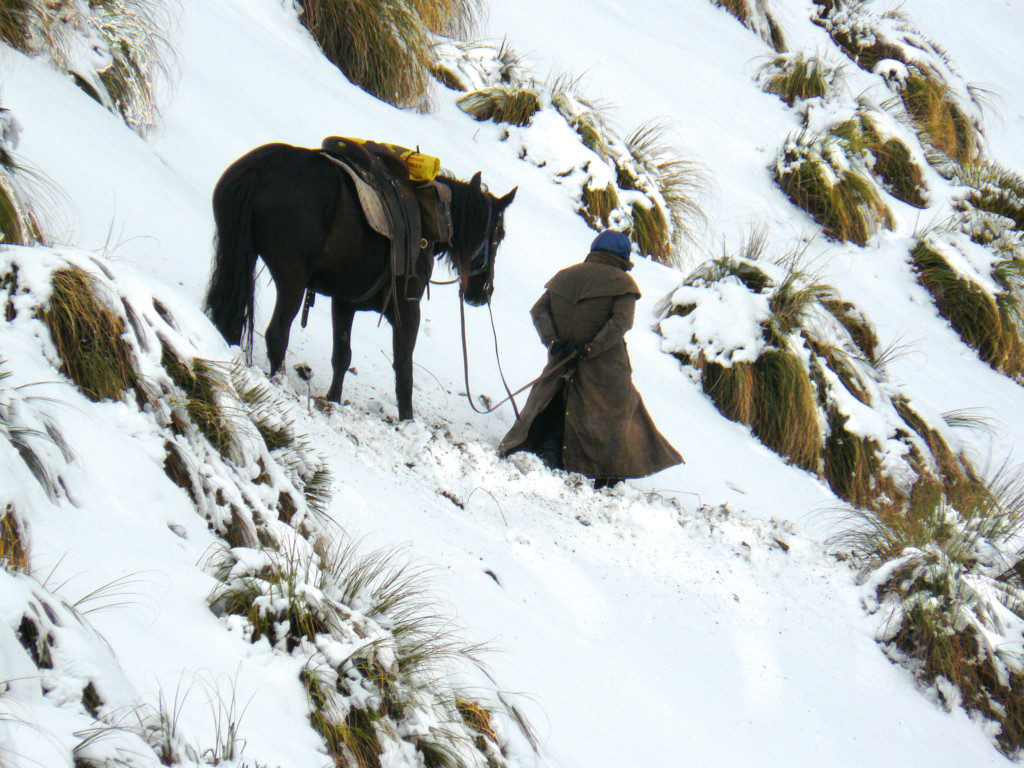
Oh but give me my stick and snow leggin's
For away to the tops I must go
Where a few thousand jumbucks are waitin'
For a chance to get out of the snow.
JUMBUCKS - Australian term
for sheep.
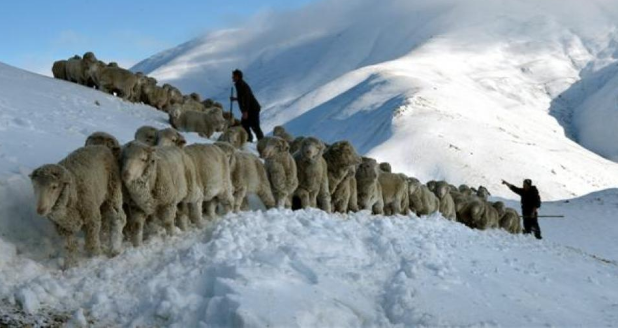
Or give me the life of a squatter
Who can sit by his fire at ease
And mortgage his run for a motor
And drive out whenever yer' please.
SQUATTER - the owner of the sheeo
that were grrazed on land leased from the
government.
MOTOR - motor car.
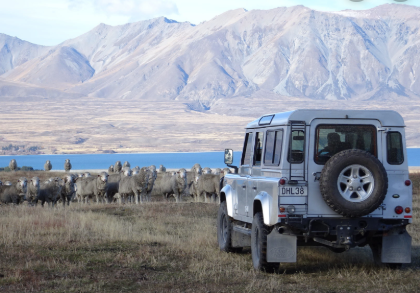
Now when I get my cheque in the springtime
It's away to the races I'll go
I'll back some old brumby a double
And forget all my life and the snow.
CHEQUE - before internet bank
payments, an employer wrote and signed a message on
paper
to his bank asking it to pay cash from his account
to the person bearing the signed piece of paper.
THE RACES - horse races where you placed large bets
which horse would win
BRUMBY - a racehorse that runs like a feral horse,
not like a thoroughbred.A DOUBLE - you bet
money on the winners of two races and get paid only
if both horses win.
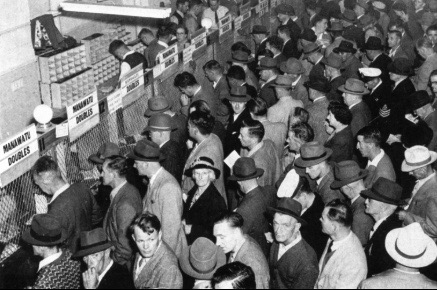
Now when climbin' the slopes of Mt
Torrin
You go for a hell of a skid
And then you look yourself over
To see if you are the full quid.
THE FULL QUID - sensible, not
stupid. A week's wages was five quid or £5, five
pounds sterling.
And after a thorough lookover
You find that you're only five bob
It's then that you roll up your bluey
And look for a government job.
FIVE BOB - five shillings- not the
full quid - stupid
BLUEY - clothes and bedding rolled up into a bundle
for carrying; a swag.
|
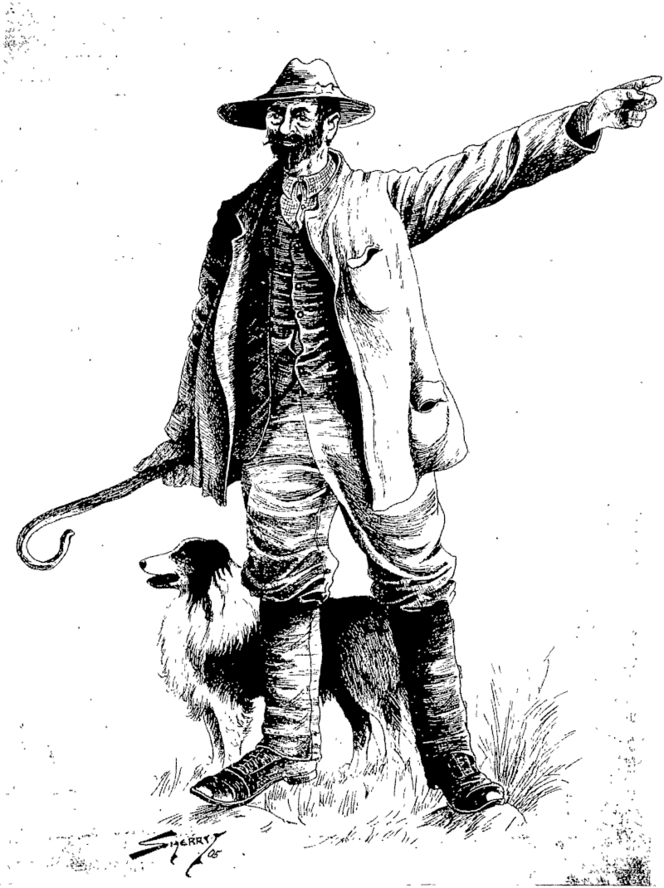





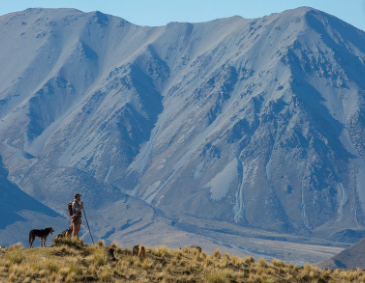
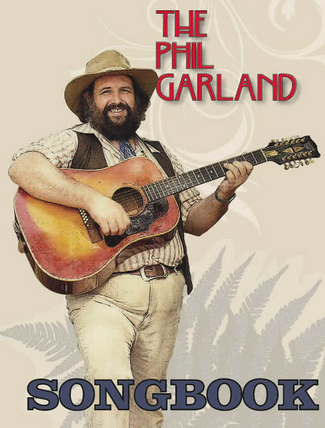 Philip Humphrey Garland QSM (b. 1942 d. 2017) was a folk
music icon in New Zealand, as a musician, collector and
preserver of New Zealand folk songs, poems, yarns and
dance tunes.
Philip Humphrey Garland QSM (b. 1942 d. 2017) was a folk
music icon in New Zealand, as a musician, collector and
preserver of New Zealand folk songs, poems, yarns and
dance tunes.